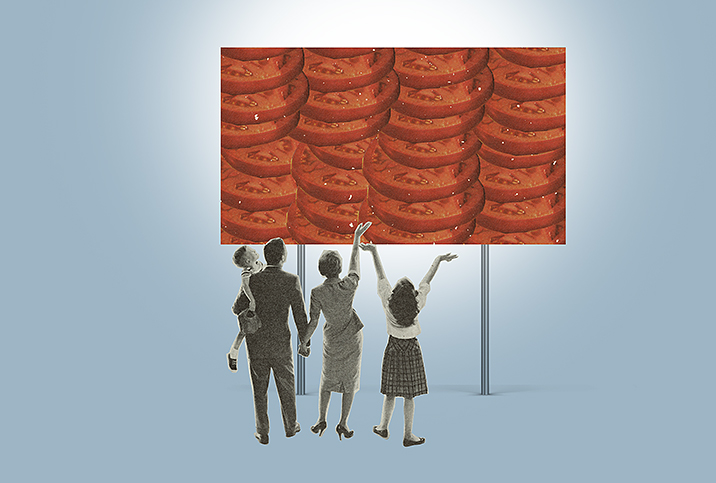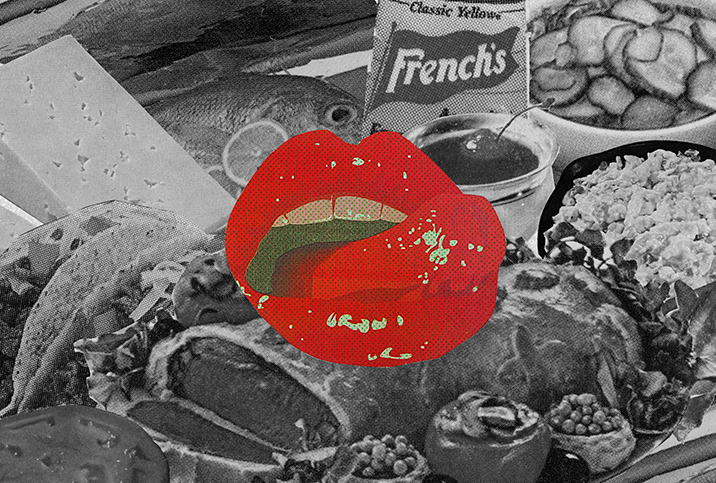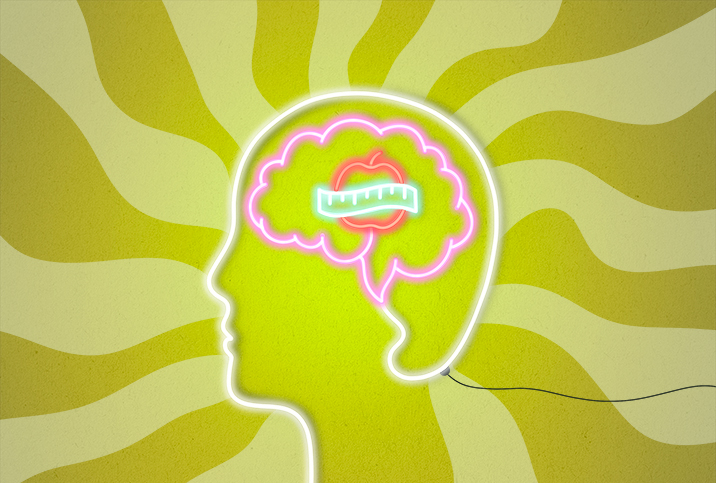Keep Your Diet From Becoming an Eating Disorder

Though body positivity and fat acceptance have moved into the mainstream over the past few years, there's no disputing diet culture is alive and well. The trillion-dollar wellness industry––which is essentially the diet industry in disguise––is projected to continue growing by 5 percent to 10 percent annually. In 2022, the top two most common New Year's resolutions (at least in the United Kingdom) were to lose weight and eat healthier.
It's clear large swaths of society remain attached to the idea that changing their diets and bodies will improve their overall well-being. However, this is not always the case, especially as dieters may forsake mental health in favor of supposed physical health. For some people, what begins as an innocuous attempt to lose weight can transform into a full-blown eating disorder. Evidence suggests many eating disorders begin with a diet.
In diet culture, 'normal' isn't always the norm
Most people intuitively understand that resolving to eat more fruits, vegetables and whole grains is a healthy choice, while restricting food to the point of starvation is not. However, when a person's behaviors are seen as "normal" within diet culture, things become murkier. With the diet industry endorsing behaviors such as fasting and cutting out entire food groups, it can be difficult to determine when a restrictive diet slips into the "disordered" territory.
Dieting is one of the strongest predictors for the development of an eating disorder, according to the National Eating Disorders Association. NEDA reports 35 percent of casual dieters become "pathological dieters"—meaning they restrict food to an unhealthy extent—and among that group, 20 percent to 25 percent develop diagnosable eating disorders.
"There are actually a lot of similar characteristics between a diet and an eating disorder, [such as] intentionally restricting what you're eating, cutting out certain foods or food groups and eating in a rigid way," said Danica Jacobs, a registered dietitian and food relationship coach based in southern Ontario, Canada. "Although every person who diets doesn't go on to develop an eating disorder, it is one of the factors that greatly increase the risk of developing one."
NEDA reports 35 percent of casual dieters become 'pathological dieters'—meaning they restrict food to an unhealthy extent
Jacobs warned dieters to stay vigilant about their mental health and well-being, especially as onlookers show admiration rather than concern when their dieting habits turn extreme.
"Oftentimes, in the early days of an eating disorder, it can go unnoticed by loved ones because it appears they are just 'eating healthy,'" she said.
This is especially true for larger-bodied people, who are often encouraged or pressured to diet, according to Emily Tam, a registered dietitian in Toronto who specializes in disordered eating.
"When those with thin bodies or so-called normal-weight bodies diet, they may be approached with expressions of concern," she said. "Meanwhile, people with larger bodies are often encouraged to diet and praised when they have enough 'discipline' to stick to an extremely restrictive eating regimen."
Why dieting can lead to eating disorders
Diets are often motivated by the stigma against larger bodies, including the pervasive belief that a person's value is tied to how thin they are. Cultural messaging suggests a person's size or shape is their own fault and that they'd be thinner if only they exercised more self-control.
According to Tam, this messaging communicates to dieters that if they're failing at weight loss, it's because they aren't working hard enough and need to be more disciplined. In turn, people may feel ashamed and engage in increasingly extreme behaviors that they hope will result in weight loss, she said.
Meanwhile, studies consistently find that dieting does not result in sustainable weight loss. This is especially true for dieters who experience binge eating, a response to depriving the body of much-needed nutrients. Binge eating can exacerbate feelings of shame and self-blame, creating a vicious cycle of bingeing and restricting.
Signs a diet is becoming disordered
While there's no clear demarcation between healthy and problematic dieting behaviors, there are ways to determine a diet is tipping into dangerous territory.
"The lines can be quite blurred between a diet and disordered eating," Jacobs said.
She listed some warning signs, including: chronic dieting, being overly preoccupied with food, regularly skipping meals and binge eating. Tam added more red flags: avoiding meals with friends or family, forcing yourself to vomit after eating, using laxatives or diet pills, and insisting on exercising even when fatigued or injured.
Behaviors aren't the only way to realize a diet is getting out of control. A person's thoughts and beliefs, and in particular, their relationship to food and their body, are all important gauges of their mental health. In fact, since some dieting behaviors, such as calorie restriction and fasting, can resemble disordered eating behaviors, it's critical to consider not only a person's actions but their mental state.
According to Jacobs, some signs that a dieter's mental health is suffering include measuring self-worth primarily by body shape or size, and feeling out of control and guilty about food. Tam added that feeling anxious around food or in situations that involve eating is another concern.
When trying to determine whether dieting has gone too far, consider the following questions:
- Has the dieter become rigid with their eating rules or do they allow for some flexibility?
- Do they have a target "goal weight" or are they pursuing weight loss indefinitely?
- Are they making reasonable lifestyle changes to accommodate their diet or have they shaped their entire life around food avoidance?
Dieters who find themselves making excuses to get out of meals with loved ones, lying about their eating habits or continually lowering their "goal weight" may be suffering from a more serious condition.
If you're worried about the effect your diet is having on your mental health, ask a family member or friend for support and consider talking to a therapist. If you think you may be developing an eating disorder, don't hesitate to seek professional help.
Dieting without harming mental health
Of course, not everyone who diets develops an eating disorder. But by and large, dieting is a pattern of behavior that should be closely watched
"Even diets that don't meet an eating disorder diagnosis can be uncomfortable, can induce stress and can lead to physical health complications," Tam explained. "All weight-loss diets have been associated with harmful impacts on eating behaviors and mental and social well-being."
In fact, Tam doesn't think there's a meaningful difference between strict dieting and disordered eating.
"When a person adopts a diet for the purpose of losing weight that involves drastic, restrictive changes to their usual eating pattern, in my opinion, they are engaging in disordered eating behavior," she said.
For this reason, she advised against dieting at all.
"I think the risk of harm to one's mental health that is associated with the pursuit of weight loss is too high," Tam said.
Jacobs agreed that dieting is often a bad idea.
"Diets don't come without risk of harm, including eating disorders, obsessive food thoughts, lowered self-esteem and social anxiety," she said.
For people who want to pursue changes to their diets, Tam and Jacobs recommended opting for a gentle approach. Tam stressed that extreme diets greatly increase a person's risk of developing a related eating disorder. Jacobs suggested taking a "non-diet approach" that accounts for mental, social and physical well-being. This could involve bringing awareness to the body's cues for eating, such as noticing and honoring your hunger and fullness, and viewing food as a way to take care of your body versus something to be controlled.
Some examples of "anti-diets" include intuitive eating and mindful eating, both of which emphasize that food is not an indulgence but rather a way to nourish the body and get in touch with your physical needs. These are both useful models for making changes to your diet that focus on improving your holistic well-being rather than just temporarily trimming a few pounds.


















